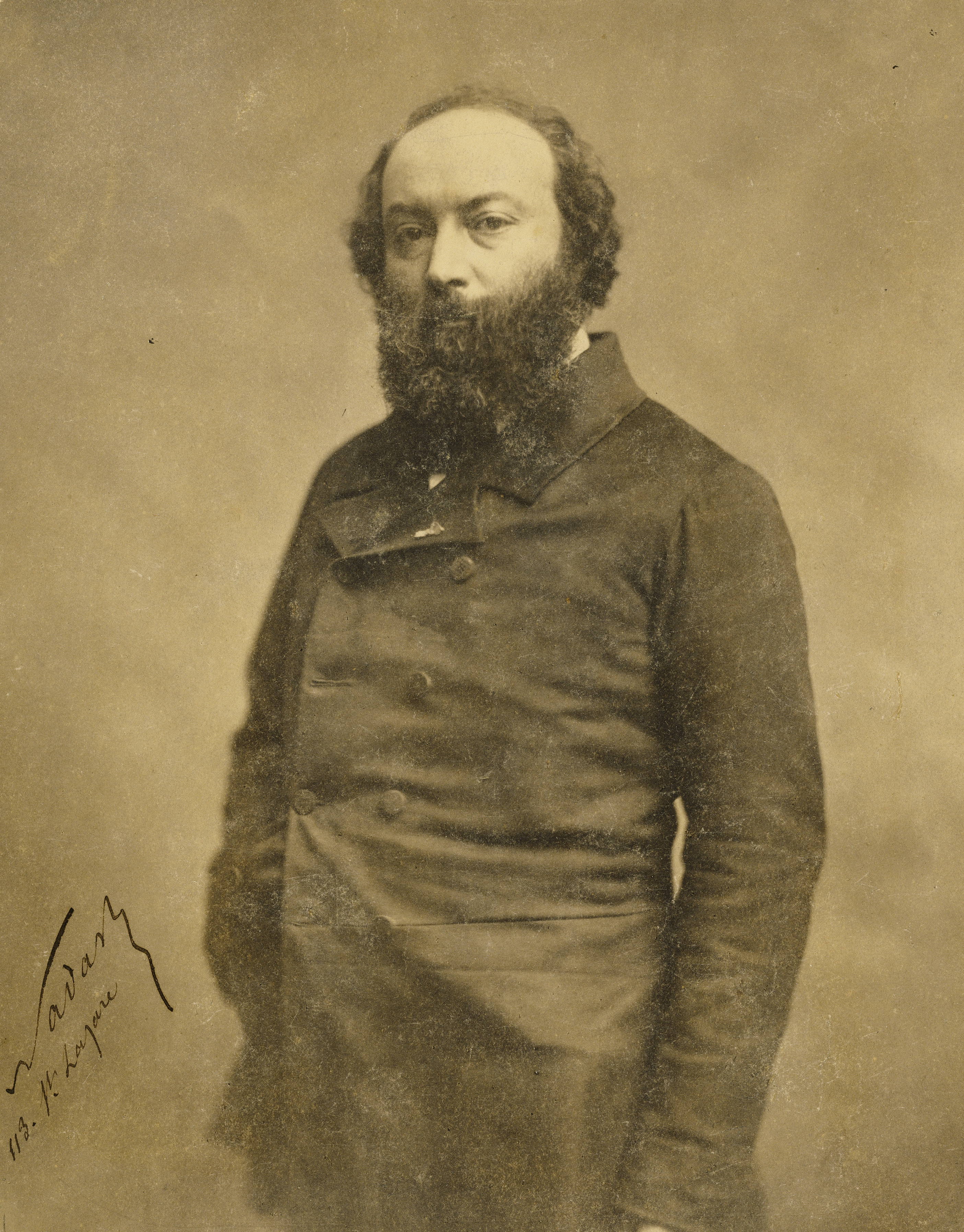as quoted by Romain Rolland in his book Millet, c. 1900; transl. Miss Clementina Black; published by Duckworth & Co, Londo / E. P. Dutton & Co, New York, 1919, p. 8
undated quotes
Théodore Rousseau: Citations en anglais
Quote of Th. Rousseau, Sept. 1867; recorded by fr:Alfred Sensier; as cited by Charles Sprague Smith, in Barbizon days, Millet-Corot-Rousseau-Barye; publisher, A. Wessels Company, New York, July 1902, p. 164
In September 1867 (two months before Rousseau’s death, when already half paralyzed), Th. Rouseau took a ride with Sensier to look once more at the heather. He was pointing to the Sully, a giant of the wood
1851 - 1867
as quoted in Barbizon days, Millet-Corot-Rousseau-Barye by Charles Sprague Smith, A. Wessels Company, New York, July 1902, p. 141
Th. Roussseau took little part in the French art-discussions of the day between Classicists and Romanticists, in the 1830's
undated quotes
Quote in a letter to Rousseau's mother, from the Jura, 17th August, 1834; as cited in The Barbizon School of Painters: Corot, Rousseau, Diaz, Millet, Daubigny, etc. , by D. C. Thomson; Scribner and Welford, New York 1890 – (copy nr. 78), pp. 111-112
1830 - 1850
Quote from Rousseau's letter to Ziem, 1856; as cited in The Barbizon School of Painters: Corot, Rousseau, Diaz, Millet, Daubigny, etc., by D. C. Thomson; Scribner and Welford, New York 1890 – (copy nr. 78), pp. 135-136
The quiet life at Barbizon was at this time broken by the death of the only son of Díaz, and by the mental distortion of Rousseau's own wife
1851 - 1867
as quoted by Charles Sprague Smith, in Barbizon days, Millet-Corot-Rousseau-Barye publisher, A. Wessels Company, New York, July 1902, pp. 160-61
undated quotes
In a letter to Mr. Hartmann, c. 1865; as quoted in The Painters of Barbizon I – Millet, Rousseau and Diaz, by John W. Mollett, B.A.; publ. Sampton Low, Marston, Searle & Rivington, Limited, London, 1890, p. 81
Mr. Hartmann, who had bought this and two other pictures had waited for them fifteen years, at last became impatient, and wrote Rousseau: 'I shall only enjoy my pictures in my extreme old age, when I shall have become too blind to see them'. his biographer/friend Alfred Sensier wrote: this seemed to Mr. Hartmann 'as the reasoning of a troubled mind.' https://archive.org/details/souvenirssurthr00sensgoog?q=Theodore+Rousseau
1851 - 1867
Quote in a letter to M. Guizot, c. 1839-41; as cited by Charles Sprague Smith, in Barbizon days, Millet-Corot-Rousseau-Barye publisher, A. Wessels Company, New York, July 1902, pp. 172-173
The Duke de Broglie had ordered of Rousseau a painting of the 'Chateau de Broglie', for his friend M. Guizot. Madame Guizot had died there, and The Duke de Broglie urged Rousseau to make the painting grave and sad.. The quote presents Rousseau’s responding
1830 - 1850
as quoted in Barbizon days, Millet-Corot-Rousseau-Barye by Charles Sprague Smith, A. Wessels Company, New York, July 1902, p. 132
undated quotes
Quote from a letter to fr:Alfred Sensier, Dec. 1866; as cited in Alfred Sensier, Souvenirs sur Th. Rousseau; quoted in The Barbizon School of Painters: Corot, Rousseau, Diaz, Millet, Daubigny, etc., by D. C. Thomson; Scribner and Welford, New York 1890 – (copy nr. 78), pp. 142-143
1851 - 1867
quote from a talk between Th. Rousseau and Alfred Sensier, 1850's; as cited in Barbizon days, Millet-Corot-Rousseau-Barye by Charles Sprague Smith, A. Wessels Company, New York, July 1902, p. 147
Alfred Sensier frequently visited the studio of Th. Rousseau (and Millet) and wrote later a book about both artists
1851 - 1867
Quote of Th. Rousseau, in a letter to his mother, late Summer 1834, from the Alps, Switzerland; as cited in Barbizon days, Millet-Corot-Rousseau-Barye by Charles Sprague Smith, A. Wessels Company, New York, July 1902, pp. 152-53
1830 - 1850
Quote recorded by fr:Alfred Sensier, in Souvenirs sur Rousseau, Paris, 1872; as cited in The Barbizon School of Painters: Corot, Rousseau, Diaz, Millet, Daubigny, etc., by D. C. Thomson; Scribner and Welford, New York 1890 – (copy nr. 78), p. 120
undated quotes
quote from a talk with Alfred Sensier, c. 1865; as cited in Barbizon days, Millet-Corot-Rousseau-Barye by Charles Sprague Smith, A. Wessels Company, New York, July 1902, pp. 159-60
the quote is pointing to his painting 'The Farm / La Ferme', upon which Rousseau had worked for years
1851 - 1867
